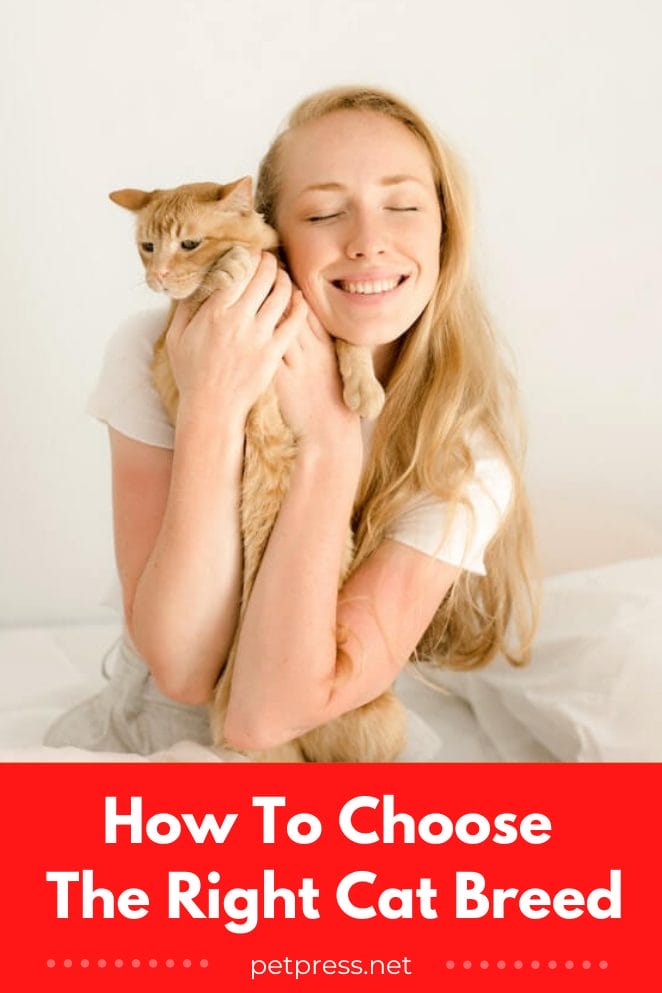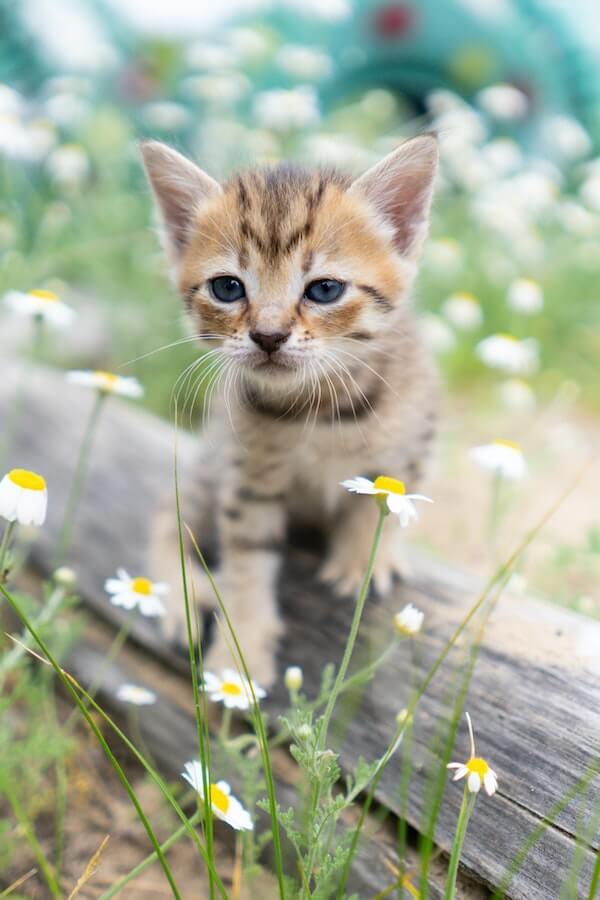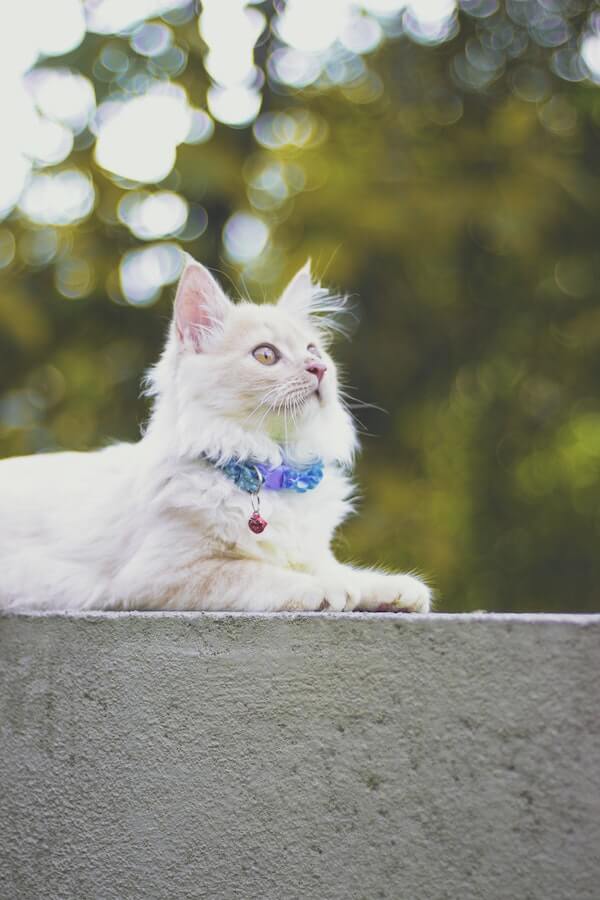
If you’re considering getting a cat, you may be thinking that any old breed will do. But let us tell you, dear reader, there is more to it than meets the eye! So how to choose the right cat breed?
Getting a new cat of the right breed can mean the difference between having an ecstatic companion to share your life with or turning your home into a feline battlefield.
Therefore it’s important to take your time and really consider what kind of cat would fit best in your lifestyle.
Are you looking for one who enjoys cuddling up on the couch all day? Or maybe something more adventurous? The possibilities are endless!
To make this task easier for you, here are a few tips on selecting the purr-fect kitty!
How to Choose The Right Cat Breed

Choosing the right cat breed for your home is an important decision. With so many different breeds out there, it can be difficult to know which one is ideal for you and your family. Here are 10 factors to consider when selecting the perfect feline companion:
1. Size and activity level:
Consider the size of your home and how much space you have to accommodate a cat. Some cats are larger than others, while some may require more active playtime than others.
Make sure you do research on the breed’s size and energy levels before making a commitment.
2. Temperament:
Each cat breed has its own distinct personality traits. Look up information about the specific breed you’re interested in to determine if it fits your lifestyle and family dynamic.
Make sure to read both positive and negative reviews about the breed, so you have a better understanding of what to expect.
3. Grooming needs:
Some cats require more grooming than others, depending on the breed’s coat type and length. Long-haired breeds may need regular brushing, trimming, or professional grooming appointments to keep their fur looking healthy and beautiful.
Shorthaired cats generally require less maintenance, but still, need consistent nail trims and regular brushing sessions to reduce shedding.
4. Health risks:
Different cat breeds are prone to different types of health problems, so be sure to research if there is any breed-specific information you should know before adopting.
Fortunately, most cats are hardy and don’t suffer from many health issues. However, it is important to be aware of potential risk factors so you can provide your pet with the best care possible.
5. Lifespan:
Some cats live longer than others, so take into consideration how much time you would like to have with a companion before making your selection.
Toy breeds typically have shorter lifespans, while large breeds tend to enjoy a longer life expectancy.
6. Shedding levels:
If you’re looking for a low-shedding cat, consider shorthaired varieties that require minimal grooming and cleaning up around the home.
Long-haired breeds will likely require more brushing sessions in order to keep shedding levels low.
7. Intelligence:
Some cats are smarter than others, so look into the breed’s intelligence level before making a decision.
Smart cats may require more stimulation in order to stay entertained, while less intelligent breeds may be content with minimal environmental enrichment.
8. Cost of ownership:
The cost of owning a cat can vary widely depending on the breed and its needs.
Researching the typical costs associated with your desired breed will help you budget appropriately and make sure you can afford all necessary expenses related to caring for your new pet.
9. Interaction with children:
Not all cats are suited for households with children, so take into consideration if any potential breeds would get along well with kids.
Some cats may be more likely to play and coexist peacefully with younger members of the family, while others may not be as tolerant.
10. Matching your lifestyle:
Make sure to consider how a cat would fit into your daily routine before bringing one home.
If you have a full-time job, think about if a feline companion would do better in an environment where it spends time alone or with other animals during the day.
Each breed has its own unique characteristics, so investigate which one best matches the type of life you lead.
Cat Breeds According to Home Size

Depending on your lifestyle, some breeds may be better suited for you than others. Here are some tips to help you make the right choice:
Apartments
If you live in an apartment or urban setting, consider a smaller breed such as a Cornish Rex or Bengal.
These cats don’t need much space to roam around and they won’t cause too much disruption with their activity levels. Also, these cats are usually quite independent so they don’t require constant attention.
Farm
If you have a larger home or even a farm then perhaps Maine Coon or Ragdoll would be the perfect companion for you.
These cats have a higher activity level and need more room to explore and play.
They are also very social cats that require plenty of interaction with their owners, so if you don’t mind some extra furry company then these breeds may be the way to go.
Suitable for all
And of course, there’s always the classic house-cat option: the beloved tabby.
Tabby cats are a great choice for any type of home as they can adjust easily to different environments and won’t cause too much disruption in your day-to-day life.
Plus, they are generally quite docile and affectionate, making them perfect family pets!
What is The Best Cat For a First-Time Owner?

If you’re a first-time cat owner looking for the perfect furry friend, there are many factors to consider. You want a cat that’s not only friendly and affectionate but also low maintenance and easy to care for.
Fortunately, there are several breeds of cats out there that fit the bill! Here are our top three picks for the best cats for first-time owners:
1. The British Shorthair:
This breed is well known for its large round eyes, thick fur coat, and laid-back disposition. They make great pets due to their loving nature and loyalty.
Plus, they don’t require a lot of grooming or exercise so they can easily adapt to any lifestyle or environment!
2. The Maine Coon:
This lovable breed is affectionate and playful, but also very calm. They thrive in family environments and don’t require much maintenance beyond the occasional brushing.
Maine Coons are also highly intelligent, so they can learn their name and respond to commands fairly quickly!
3. The Ragdoll:
This gentle giant of a cat loves nothing more than snuggling up on your lap for hours on end.
They’re known for being incredibly laid back and docile, making them great pets for first-time owners who want an easy-going companion. Plus, they don’t require a lot of grooming or exercise either!
Bottom Line

In conclusion, whichever breed you choose, make sure to do your research beforehand so that you know what to expect from your new companion.
Find out as much as you can about the breed, its temperament, and its activity level so that you can ensure it will fit in well with your lifestyle.
No matter which breed you choose, it’s essential to remember that cats are living creatures with unique personalities.
With some preparation and patience, you’ll be sure to find the perfect feline friend for your home!
Good luck in your quest!


GIPHY App Key not set. Please check settings